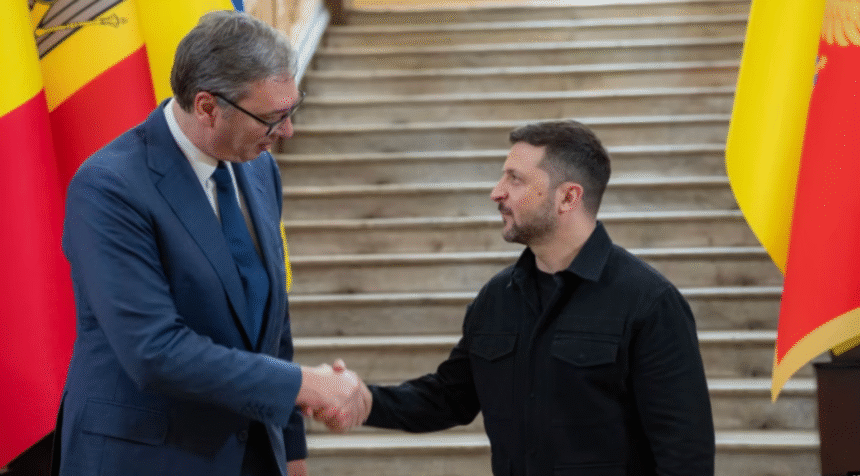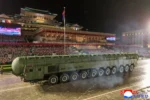During his first visit to Ukraine since Russia launched its full-scale invasion, Serbian President Aleksandar Vučić did what many anticipated: he refused to sign a joint declaration at the Ukraine–Southeast Europe Summit in Odesa that condemned Russian aggression and called for sanctions.
Explaining his decision, Vučić stated proudly, “I didn’t betray Russia,” and emphasized once again that Serbia is neutral—a neutrality that, coincidentally, seems to consistently lean toward avoiding any criticism of Moscow.
“I was again the only one who didn’t accept the declaration,” he said, apparently taking pride in Serbia’s solitary stance—an increasingly familiar position when international consensus clashes with Kremlin interests.
The Declaration Vucic Declined
The declaration, signed by countries including Romania, Moldova, Greece, and Croatia, explicitly:
- Condemns the Russian invasion
- Supports Ukraine’s NATO membership
- Calls for the withdrawal of Russian troops
- Denounces war crimes and the deportation of Ukrainian civilians
Vučić, however, explained that the text’s reference to sanctions against Russia made it unacceptable for Serbia. Fortunately, no “heavy pressure” was applied, allowing him to maintain Serbia’s increasingly creative interpretation of neutrality.
“Neutral,” But Always in Sync With Moscow
While Vučić insists that Serbia respects international law and the territorial integrity of UN-recognized states, this respect somehow never translates into aligning with the Western stance on Russia’s war. Instead, Vučić highlighted how Serbia’s position “could also benefit Ukraine” — perhaps a nod to Belgrade’s longstanding efforts to walk the geopolitical tightrope without ever losing sight of Moscow’s gaze.
In a further flourish of diplomacy, Vučić thanked Ukrainian President Volodymyr Zelensky for respecting Serbia’s territorial integrity — code for Kosovo, which Vučić was quick to point out was not represented in Odesa.
Diplomatic Gestures… With Limitations
Vučić pledged that Serbia would help rebuild one or two small towns in Ukraine — a modest contribution which, though appreciated, sits somewhat awkwardly beside his refusal to endorse a document condemning the very destruction that makes reconstruction necessary.
Zelensky nonetheless welcomed Vučić’s presence and Serbia’s “helpful” gesture. The two discussed EU integration, bilateral relations, and the importance of diplomacy—though with Serbia refusing to condemn the war’s perpetrator, one might wonder what diplomacy Vučić has in mind.
A “Neutrality” Full of Exceptions
Since the war’s outset, Serbia has formally supported Ukraine’s territorial integrity but has refused to join Western sanctions or even publicly denounce Russia’s actions.
Yet, Serbia’s claim of neutrality has come under increasing scrutiny. Russian intelligence recently accused Belgrade of indirectly supplying ammunition to Ukraine, despite repeated Serbian denials and Vučić’s insistence that all arms exports are out of Serbia’s control once sold to intermediaries.
After Russia accused Serbia of “stabbing it in the back,” Vučić vowed to cut contracts if there were suspicions of weapons ending up in Ukraine—another balancing act to keep both sides just satisfied enough.







